Sur-Face
Andy Hope 1930,
Franziska Goes,
Martin Assig,
Bart de Clercq,
Rik Moens
Lichttorenplein 16, Knokke
04.08 — 09.09
2022
2022
In Specific Objects, Donald Judd’s 1965 seminal text, the artist-critic writes: “The main thing wrong with painting is that it is a rectangular plane placed flat against the wall.” The two-part exhibition Sur-Face at the Knust Kunz space in Knokke somehow responds to the above judgement, not as a negative dismissal of painting but as a fruitful resource of inspiration. The exhibition asserts the pregiven confinements of the material properties of painting and examines the possibilities they can provide us with, when either elaborated on or deconstructed. Its underlying idea is to exemplify how the painted picture plane oscillates between pure physical flatness and wide-ranged semantic conduciveness.An interplay of opposites stemming from dialectical contradictions and paradoxes, the work of Rik Moens both mirrors and bends the physical givens of painting, reasserting them by ways of negation and transformation. His paintings distortedly resonate the two-dimensional flatness of the canvas on which they are executed by implementing recesses, depths, and holes into it, rearranging its surface as an actual three-dimensional volume. Moens’ paintings highlight the boundaries of the stretcher on which the canvas is mounted by cancelling them, generating painterly situations which unfold in the midst of expansion and explosion. During the last five years Bart De Clercq has been developing a unique mode of painting that tackles the physical properties of the material support. His mode of painterly practice is based on working from the back of the material support, perforating it and injecting atomized dot-like outbursts of paint from the back of the surface towards the front of the painting in a manner which unites and divides it at the same time. Andy Hope 1930, however, brings the discussion to his own territory. For Hope the picture plane is not only a flat surface, it is also a stock of art-historical narratives. Hope 1930 treats historical painterly genres and styles as a material which he molds and manipulates to his own needs. His painting blends aspects of various painterly aesthetic which are being harnessed to generate a unique visual idiom and vocabulary which operate within an artistic personal universe and mythology. Martin Assig’s paintings carefully engender a surface structure by applying encaustic on paper and wood, reacting and twisting the textural configuration of the material support. His approach to painting is tied to linear drawing and to verbal inscription. He combines the shapes of faces, bodies and patterns with words and sentences. His manner of painterly drawing evolves out of a patient working process, like that of the monks who worked on medieval manuscripts or present-day comic strip artists. Ace Ehrlich characterizes Franziska Goes’ layered mode of painting with regard to the digital world and the pop-up windows of, on, and in the flat screen. In a text accompanying the artist’s recent catalogue Ehrlich writes: “Goes reconstitutes painterly tropes into self-contained windows and discrete skirmishes; the visual languages of computer graphics and 20th century abstraction prove as intuitively legible to the 21st century viewer as saintly attributes and divine allusion did to church-going audiences six hundred years ago.”
Works
-
-
-
-
Andy Hope 1930
Afternoon of the Future Past, 2020
Contact Gallery
Öl, Goldbronze auf
Leinwand
59,5 x 69,7 cm -
Andy Hope 1930
Afternoon of the Future Past II, 2022
Contact Gallery
Glitter, Lack ,Acryl auf
Leinwand
50 x 70 cm -
-
-
-
Artists
-
 Andy Hope 1930
Andy Hope 1930 -
 Franziska Goes
Franziska Goes -
 Martin Assig
Martin Assig -
 Bart de Clercq
Bart de Clercq -
 Rik Moens
Rik Moens











